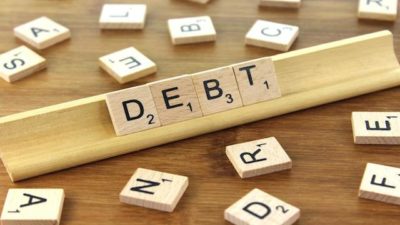Have you suddenly found yourself with some extra cash? Perhaps you’ve received an inheritance from a beloved relative, a handsome work bonus, or a winning lottery ticket. Are you thinking of using the money to pay off your debts ahead of schedule?
Though paying things off early might not be the right choice for everyone. For some it can make total sense to start paying off debts such as their mortgage early. After all, most of us want to spend our golden years with peace of mind and a sense of freedom. It’s only natural to want to pay off debts as soon as possible, particularly when things are good and money is flowing.
Key questions
When thinking about paying off your debts early, it’s a good idea to assess your situation and ask yourself a couple of key questions, such as:
- Is this truly the best use of my extra cash?
- Are there any interest savings and are they really worth it?
- Do I have an emergency fund?
- If I am nearing retirement, will I still be left with enough money if I pay off my loans early?
If your answer to these questions is yes, paying off your debts early could work for you. Here are some of the main benefits that you stand to gain.
Save massively on interest
When you pay off a debt early, you reduce the amount of interest that you would have paid over the original loan repayment term.
For example, imagine you have taken out a new £ 225,000, 30-year, 4% fixed-rate mortgage. At this rate, your monthly payments would be roughly £ 1,074. If you were to add an extra £500 to your monthly payments, you could shorten your mortgage term by 13 years and 9 months and save over £ 80,000 in total interest payments!
This scenario applies to other kinds of debts, including car loans and credit cards.
Free up money for other things
Rather than forking out money to a lender, after paying off your debts, you will have more money in your pocket. You could use it for your children’s uni education, for travel and entertainment, for a new car, or that home improvement you’ve been putting off.
Have peace of mind
Carrying debt comes with a lot of stress, pressure, and anxiety. It can distract you from your financial goals, making it harder to reach them. Paying off debts early, however, brings mental freedom and a sense of security. You may find you’ll no longer have to worry whether you’ll be able to make your monthly payments.
Handle any future financial crisis
Life is full of surprises, and financial emergencies can occur at any time. It could be redundancy or even a medical emergency. Lenders still expect you to pay back the money you owe even when facing a personal financial crisis. Any delays in payments will lead to penalties, putting you further in debt.
When you pay off your loans early, you put yourself in a much better position to handle any financial difficulty you may encounter. You’ll be able to direct your full attention to it without the added worry of existing debt.
Retire on time
Paying off your debts early can help you retire on time. You can avoid having to postpone your retirement in an attempt to give yourself more time to pay everything off. Going into retirement debt-free also means that you have one less thing to worry about. You can just focus on enjoying your well-earned freedom.
Final word
Paying off your debts ahead of schedule can bring several key benefits. With that said, early debt payment is not always the best move for everyone. The key is to analyse your personal circumstances, determine whether it makes sense to pay off your debts early and then do it in a smart way that does not compromise your current financial well-being.




